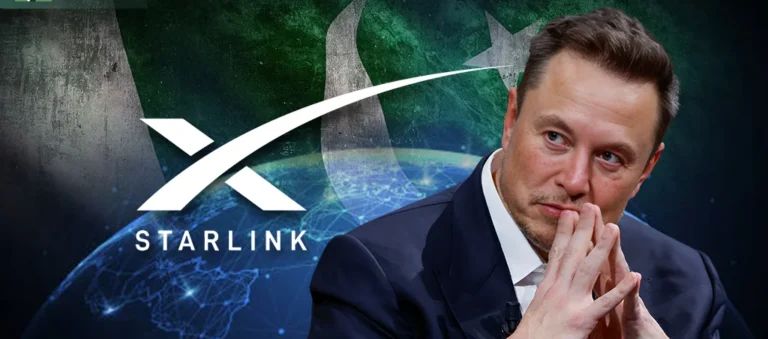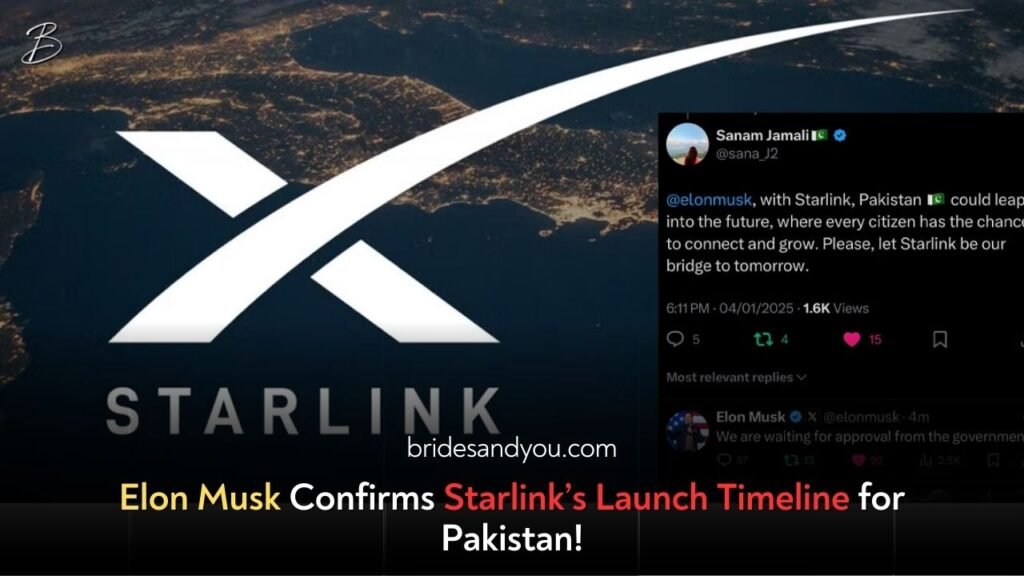Now Reading: Starlink Gets License to Operate in Pakistan: A New Era of Connectivity
-
01
Starlink Gets License to Operate in Pakistan: A New Era of Connectivity
Starlink Gets License to Operate in Pakistan: A New Era of Connectivity

In a groundbreaking development, Starlink, the satellite internet company owned by billionaire Elon Musk, has received provisional approval to operate in Pakistan. This marks a significant step in expanding internet access, particularly in remote and underserved areas. With Pakistan struggling with connectivity issues, Starlink’s entry is expected to revolutionize internet services by offering high-speed, low-latency internet.
Starlink’s Approval Process in Pakistan

Starlink’s entry into Pakistan follows extensive discussions between government authorities and the company. The process involved approvals from multiple regulatory bodies, including the Pakistan Space Activities Regulatory Board (PSARB) and the Pakistan Telecommunication Authority (PTA).
- Initial Green Light: The decision to grant Starlink permission was influenced by directives from Prime Minister Shehbaz Sharif and other key government officials.
- Regulatory Approvals: After registration with the PSARB, Starlink must obtain a formal operating license from the PTA.
- Security Considerations: Authorities are negotiating terms regarding service shutdowns in case of security concerns, a common practice in Pakistan during sensitive events.
How Starlink Works and Why It Matters
Unlike traditional broadband that relies on fiber optic cables, Starlink uses Low Earth Orbit (LEO) satellites to deliver internet. This enables Starlink to provide coverage in areas where traditional ISPs fail due to challenging terrain or lack of infrastructure.
Key Benefits of Starlink in Pakistan
✅ High-speed internet in remote areas where traditional ISPs struggle
✅ Reduced dependence on terrestrial networks prone to disruptions
✅ Improved connectivity for businesses, freelancers, and educational institutions
✅ A potential boost for the IT sector and remote job opportunities
Challenges and Concerns
Despite the excitement surrounding Starlink’s arrival, there are concerns and challenges to address:
- Regulatory Hurdles – Starlink must comply with Pakistan’s telecommunication regulations and security protocols.
- Pricing and Affordability – Starlink’s services may be costly compared to existing internet providers, raising concerns about accessibility.
- Cybersecurity Risks – The government is cautious about unauthorized Starlink access, as reports suggest its use in border regions by unauthorized entities.
- Collaboration with Local ISPs – While Starlink offers a new option, it is not expected to replace traditional mobile networks but rather complement them.
The Future of Internet in Pakistan with Starlink
The launch of Starlink in Pakistan could set a precedent for satellite-based internet services in the region. The government is also in discussions with other global providers, including Shanghai Spacecom Satellite Technology, a Chinese company exploring the Pakistani market.
For Pakistani users, Starlink presents a new era of digital inclusion, particularly for rural and remote areas that have long struggled with poor internet connectivity. As discussions continue, it will be interesting to see how this partnership unfolds and what it means for the future of Pakistan’s digital landscape.






















